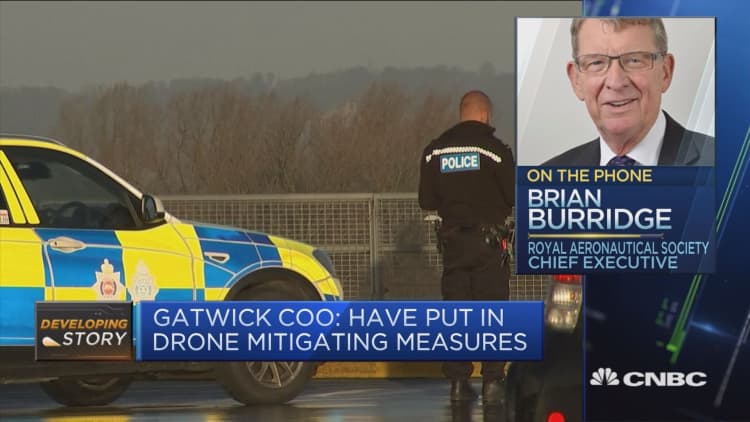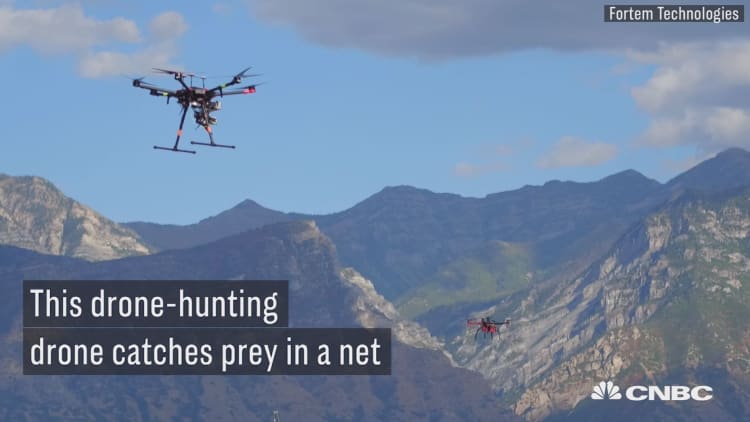London's Heathrow airport had to suspend flights on Tuesday after drone sightings there, following similar disruptive incidents at Gatwick in December that affected 1,000 flights.
The move to suspend flights is understandable. Airports and the airlines that pay them don't want to see a drone sucked into a jetliner's engine, or a drone that's rigged as an explosive device wreaking havoc.
But it seems absurd that a couple of $500 drones and some rogue pilots can disrupt millions of dollars of business by causing flight delays and negative experiences for travelers.
With so much at stake — in terms of safety and profits — why aren't airports better prepared to deal with drones?
It's not for lack of technology, said Lance Sherry, director of the Center for Air Transportation Systems Research at George Mason University.
"Counter drone" systems are already on the market, though they are not perfect and are constantly evolving, he said. They employ high-resolution radar and other sensors to detect drones. Some use lasers, ballistics, nets and signal jammers to intercept and take drones down as needed.

Examples of counter-drone companies range from newer start-ups like Dedrone in San Francisco, to larger defense firms like the $2 billion Israeli company Rafael and Rome-based Leonardo.
The CEO of Dedrone, Joerg Lamprecht, said all players in the air travel industry are still grappling with the question of authority.
"Airports have a lot of red tape," he said. "This is a new issue. Who is in charge, who controls the airspace, who is the one that should be providing drone detection? Who has the authority to manage this and to intervene – is it federal police, local police, someone who owns the airspace?"
Interdictions are allowed at military bases in the United States and some fixed sites that are owned by federal agencies. But authority hasn't been determined at every commercial airport.
Brian Wynne, president and CEO of the Association for Unmanned Vehicle Systems International, wants to see the drone industry and aviation authorities around the world agree to "remote identification," something like digital license plates, for drones. With remote identification, he believes, airports could easily identify a drone's owner and contact them to land the drone if it's flying where it shouldn't.
No matter how the laws shape up and counter-drone technology evolves, Sherry said the disruptions at Heathrow and Gatwick should serve as a wake-up call.
"If you look at the industry as a whole, the way it works the airports, airlines, air traffic controllers, aircraft makers, and fuel companies all have to cooperate to provide air service. Everyone's objectives are different. And it's sort of a 'tombstone' industry, where it takes an accident to get funding to flow and people working on a problem. Until just now? There has been nothing dramatic enough to make them work on this. We should all be thankful that these incidents were not more severe, there were no injuries or fatalities."
The drone sightings at Heathrow and Gatwick prompted quick regulatory changes. Law enforcement in the U.K. is now permitted to land, seize and search drones, and to fine operators who fail to comply with orders to land their small drones, or fine those who fly without properly registering their drones as well.
Wynne said he's hoping for similar advances on the regulatory front in the U.S. soon.



